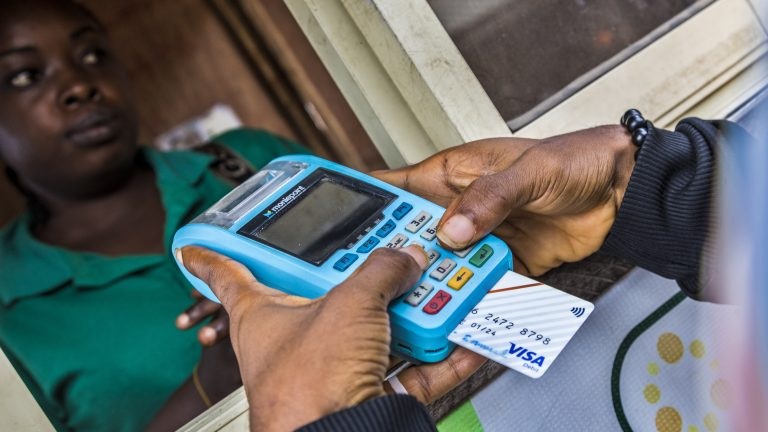
In a recent report, Nigerian Tier-1 banks amassed N392 billion from electronic business in 2023, amidst increased cashless transactions.
The amount generated was from five top Nigerian banks which include, Access Holdings, Zenith Bank plc, GTCO Holdings, FBN Holdings, and United Bank for Africa (UBA).
In the 2023 full-year financial report, the United Bank for Africa (UBA) led other banks in revenue from the electronic business segment, earning N125.5 billion. This marked a 59% increase in UBA’s e-business income compared to the N78.9 billion recorded in 2022.
Register for Tekedia Mini-MBA edition 19 (Feb 9 – May 2, 2026): big discounts for early bird.
Tekedia AI in Business Masterclass opens registrations.
Join Tekedia Capital Syndicate and co-invest in great global startups.
Register for Tekedia AI Lab: From Technical Design to Deployment (next edition begins Jan 24 2026).
Access Holdings ranked second in e-business revenue for the year, generating N99.1 billion. The bank’s electronic transactions grew, by 66% in 2023, up from N59.6 billion in the previous year.
Although FBN Holdings has not yet published its audited financial results for the year, interim results indicate that its e-business income rose from N55 billion in 2022 to N66 billion in 2023. This represents a 20% increase in electronic transactions in revenue, with the potential for a higher figure once the audited results are released later this month.
Zenith Bank raked in N51.8 billion from electronic transactions in the year under review, representing a 13% growth over the N45.7 billion recorded in 2022.
GTCO Holdings generated 40.8 billion in its e-business revenue for 2023, representing an 8% growth over the N37.7 billion the company earned in the preceding year.
Notably, other financial banks in Nigeria also recorded significant results in their e-business revenue. FCMB, for instance, grew its electronic transactions income by 26% to N17.7 billion in 2023.
Stanbic IBTC almost doubled its -business earnings in 2023 as it generated N4.4 billion, an increase of 76% from the N2.5 billion it earned in 2022. Wema Bank also recorded an increase in e-business for the period, growing from N6.1 billion in 2022 to N7.3 billion in 2023.
Fidelity Bank’s -business income also jumped from N2.8 billion in 2022 to N3.6 billion in 2023, representing a 29% growth year on year.
The significant revenue recorded by these banks is not surprising as it was reported in April this year that six of them increased their spending on their IT by 44.66 percent to N205.34 billion as more customers carried out electronic transactions. Access Holdings Plc, the parent company of Access Bank is reported to have spent the most last year on IT (N78.05 billion).
Guaranty Trust Holding Company (GTCO), the parent company of GTBank, increased its IT expenses to N50.24 billion, while Zenith Bank spent N33.59 billion. The United Bank for Africa PIc (UBA) spent N23.19 billion; Stanbic IBTC Holdings Ple, N19.34 billion; and Wema Bank N1.42 billion.
UBA reported the most electronic banking income of N125.58 billion. Access earned N101.62 billion from electronic transactions; Zenith, N51.82 billion; GTCO, N40.83 billion; Wema, N7.35 billion; and Stambic, N4.42 billion.
It is worth noting that in recent years, electronic payment has surged in Nigeria which has been partly boosted by the Central Bank of Nigeria’s (CBN) naira redesign policy and withdrawal limits rolled out in December 2022.
Data from the Nigeria Inter-Bank Settlement System, NIBSS disclosed that e-payments grew by 54.55 percent year-on-year to N611.06 trillion in 2023 from N395.38 trillion in 2022.
By 2025, the apex bank expects the country to have a cashless and efficient electronic payment system infrastructure, with the CBN, ‘Payments Vision 2025 document, predicting that the use of cash payments should have lessened by 2025.



